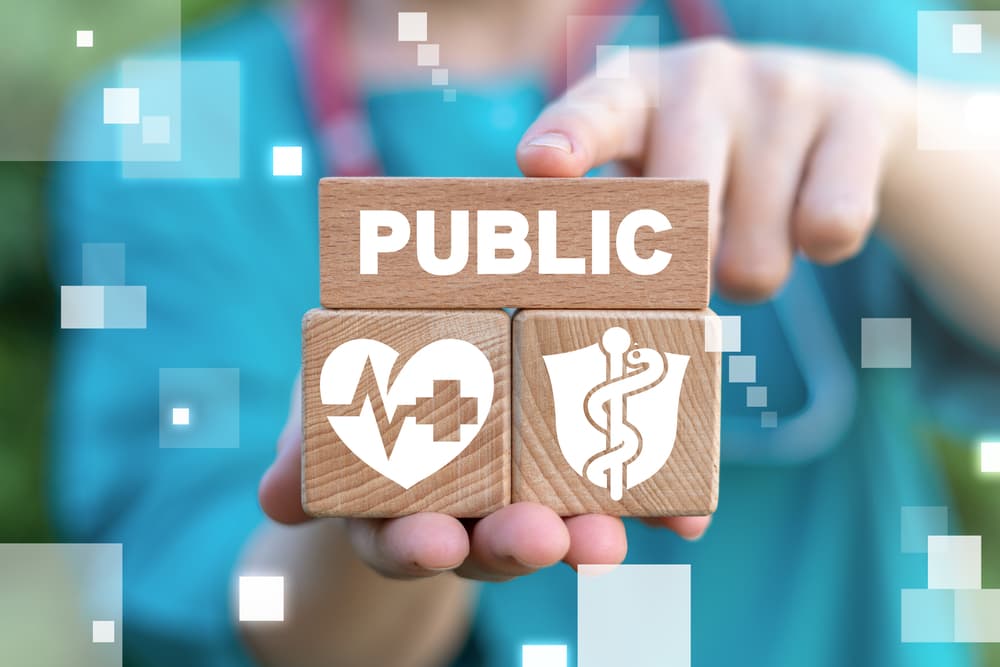The Role of Health Science Professionals in Public Health
As the world becomes increasingly interconnected, the need for health sciences is greater than ever. Health scientists play a foundational role in shaping effective public health practices, doing everything possible to prevent the spread of disease and educating people about steps they can take to protect their health.
Health science encompasses a broad spectrum of disciplines, including roles as health administrators and public health educators. Those who enter the health science profession by earning a graduate degree can choose to focus on public health. It’s an essential facet of the healthcare system, and one that’s expected to become increasingly important as the world’s population comes together more than at any time in the past.
Advancements in health sciences continue to elevate the role of public health in both developed and developing nations.
What Is Public Health?
Public health is the science and practice of protecting and improving the health of people and their communities. It focuses on preventing disease, prolonging life, and promoting health through organized efforts rather than treating illness after it occurs.
Unlike clinical medicine, which centers on individual patients, public health works at the population level. It aims to address health challenges through research, education, policy, and intervention. Examples include vaccination programs, health education campaigns, clean water initiatives, and policies that promote safe environments and access to healthcare.
Key areas within public health include:
- Epidemiology: studying patterns and causes of diseases
- Environmental health: addressing pollution, sanitation, and workplace safety
- Health promotion: encouraging healthier behaviors through education
- Health policy and management: shaping systems and laws to improve health access and outcomes
At its core, public health is about creating conditions that enable people to live healthier lives, especially in underserved or at-risk communities.
Health Science and Public Health
Health science is traditionally focused on diagnosing and treating individual patients. However, it has progressively shifted toward prevention, wellness promotion, and population-level interventions. Public health draws on health science to identify trends, measure disease burden, and evaluate interventions, ensuring scientific rigor underpins policies and programs.
Education is an essential component of public health. This includes crafting strategies to encourage healthy behaviors and designing campaigns that retrofit environments to support wellness. Health science informs which messages resonate and why, aiming to shift behaviors on a large scale.
Health scientists who focus on public health may also work in policy development and health management. This work can include translating scientific evidence into laws, guidelines, and systems. It also may encompass overseeing health organizations and program delivery. Advancements in health sciences have made these processes more data-driven and effective, improving the speed and precision of public health interventions.
The Importance of Health Communication
One critical aspect of public health is health communication, which involves sharing health-related information in ways that inform, influence, and empower people and communities to make healthier decisions. It combines principles from communication, public health, psychology, and social science to design and deliver messages that promote wellness, prevent disease, and improve quality of life.
Health communication plays a crucial role in public health campaigns (such as anti-smoking efforts and vaccine awareness), the creation of health education materials, crisis communication (such as pandemics or disease outbreaks), and combating misinformation. The latter has become a bigger issue as the internet enables the rapid spread of incorrect information.
Ethical Aspects of Public Health
Public health rests on three foundational functions: assessment, policy development, and assurance. Health science contributes to each, providing methods to gather data (assessment), evaluate and design strategies (policy), and ensure programs reach all communities (assurance).
Modern public health also requires a scientific lens to identify and address disparities rooted in social determinants, such as poverty, environment, and structural barriers. Health science drives the quantification and exploration of these inequities, creating the groundwork for targeted, just interventions. Advancements in health sciences have expanded the tools and insights available to researchers and policymakers working to close these gaps.
Yet, as some analysts note, science alone can’t dictate policy. Value-based tradeoffs, including the evaluation of economic, ethical, and practical considerations, must complement evidence to guide decisions such as those regarding water fluoridation or school closures.
Touro University Worldwide’s Master’s in Public Health
Touro University Worldwide’s Master of Science in Health Sciences (MSHS) with a concentration in Public Health is a fully online program crafted for working professionals eager to lead and advance public health initiatives. Designed in accordance with Council on Education for Public Health (CEPH) standards, the program equips students to assess, plan, implement, and evaluate public health strategies across diverse settings.
The mission focuses on developing leaders in the health sciences who can promote health, prevent disease, and reduce disparities among underserved populations. Graduates gain skills in research, program evaluation, and delivering culturally competent interventions.







